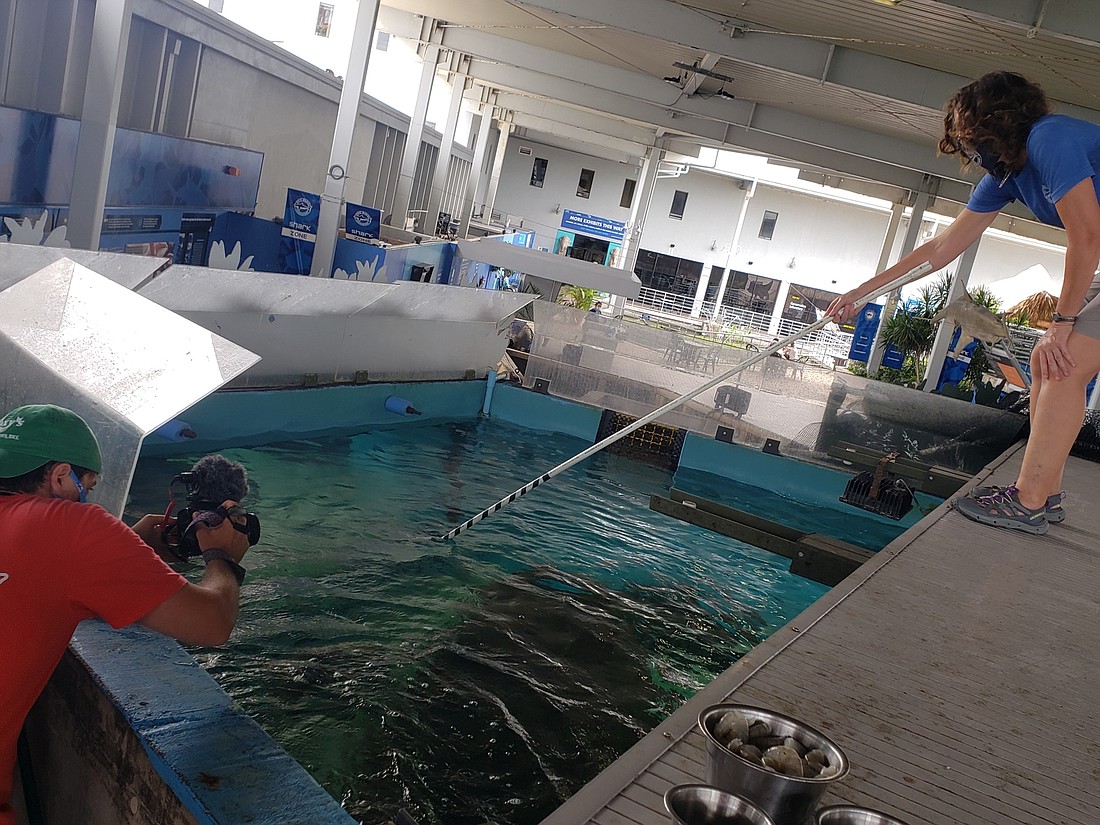- November 20, 2024
-
-
Loading

Loading

Instead of in-person summer camps, Mote Marine Laboratory and Aquarium will test the waters of virtual camps in June.
The aquarium is often bustling with dozens of summer campers, but as the coronavirus pandemic wears on, Mote moved to offer a camp experience in a different way. The new programs fall under the program title of “Online STEMventures with Mote.”
“It’s been a process figuring out what we can offer online and getting those materials together in a virtual way,” public relations manager Stephannie Kettle said. “We’re also figuring out what’s best for our camp-goers and what kind of experiences will be a valuable, virtual experience for them this summer.”
They’ll keep the camps limited, to make sure kids and educators can still interact closely without too much disruption. Programs will involve more demonstrations rather than hands-on learning, and programs for the 11-13 age range will be digital-focused, involving coding and digital media.
“Participants log on to learn about the topic of the day, (then) you take a break to complete your home activity, project or experiment,” Kettle said. “Then during that time, you can chat with our educators if you have problems or questions while you're doing the activity, and then we wrap up with a meet-up again to share your activity and review what we learned.”
Caretakers of younger kids can help them participate with themed STEMventures without time restrictions, as the camp packages would be emailed to parents, who could complete activities with their youngsters at their own pace. Videos and worksheets will help Mote keep its younger campers entertained without having to coordinate them via video chat.
“I think if this does work out, it just really has potential to be another program that we could offer,” Kettle said. “Perhaps in the future we have in-person and virtual things like that, but it's really hard to say for sure exactly what we'll do, because we're just trying to keep a really open mind and stay really flexible.”
The aquarium’s educators have experience with running virtual classrooms through the SEAtrek program, which have been available for students and lifelong learners since the mid-1990s.
There’s no details yet on what the aquarium will do for the rest of the summer, if in-person camps will become more viable in July or August, but they’re trying to stay flexible, Kettle said.
“This program is totally new,” Kettle said. “Our education team has been working hard since we closed for all of our education programming to (become) virtual.”